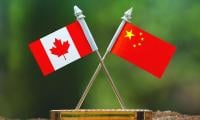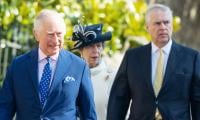The Chinese dream
The twice-a-decade national congress of the Communist Party of China successfully concluded in Beijing in October. The national congress that comprises nearly 2,300 elected and specially invited delegates from across China critically reviews the past performance of the party and carries out intense deliberations to chart future course.
At the conclusion of the 20th National Congress, the Ministry of Foreign Affairs of the People’s Republic of China said that “the congress calls on the whole party, the entire military, and the Chinese people of all ethnic groups to stay closely rallied around the Party Central Committee with Xi Jinping at its core, to keep in mind that empty talk will do nothing for our country and only solid work will make it flourish, to maintain firm confidence, unite as one, forge ahead with resolve, and to strive in unity to build a modern socialist country in all respects and advance national rejuvenation”.
The congress also called for a stronger and prosperous China with absolute faith in the leadership that has the wellbeing of the people of China at heart; this may be realized by building strength, upholding fundamental principles and striving in unity to build a dream socialist country.
China’s Communist Party has elected President XI Jinping as its secretary general for a third term, an honour that has broken the past norms. When Xi Jinping assumed leadership in 2012, he began to work tirelessly for the aspirations of the most populous nation on earth. His prime emphasis was upholding the Chinese constitution, rule of law, anti-corruption measures and poverty-alleviation initiatives.
At home, he made a remarkable difference in poverty alleviation, the economy, space programmes, infrastructure development, climate change and the Covid-19 challenge. China happens to be the only country that can claim the eradication of absolute poverty in a short span of four decades. In the past ten years alone, China allocated $230 billion to achieve the goal of alleviating poverty while its GDP rose to $17.73 trillion that counted for 100 per cent increase since 2012.
China’s gross national income rose from $5,910 in 2012 to $11,890 in 2021. It also saw an enormous growth in the manufacturing industry. China now contributes to nearly 30 per cent of the global manufacturing output and has become the largest trading network across the world. Its Belt and Road Initiative, for instance, has 149 countries onboard that counts for 60 per cent of the world’s population and 35 per cent of the global economy. China’s space programme is not only competing with that of the US and Russia but will also be far ahead of them and entirely dominate space in the near future.
Exasperated over corrupt practices, President XI Jinping regarded corruption as a threat in a society and the major impediment for development of a country. He vowed to end corrupt practices and initiated an anti-corruption drive that brought to trial nearly 1.5 million officials and individuals in various offences. China also witnessed a revolutionary infrastructure development in the past ten years that led to massive expansion in rail and road networks, besides building 82 new airports to enhance connectivity.
President XI Jinping has worked over time to mitigate the daunting challenge that environmental degradation and climate change pose to China. The country has also aggressively battled Covid-19 and confined it to 0.05 per cent of the global count, which is a huge success for a country that makes up 18.47 per cent of the world’s population.
Although China’s success story stems from visionary leadership, political stability, popular trust in central authority and continuity of policies, President Xi Jinping is likely to find it hard in his third term to tackle upcoming challenges at home and abroad. Maintaining stability, addressing environmental degradation, zero tolerance to pandemic control, and economic and social development are major challenges at home.
Growing competition with the US, the explosive Taiwan issue, the deteriorating situation in the South China Sea, Russia’s war in Ukraine and stability in the periphery are some of the challenges that Xi Jinping is likely to confront in the future. In the face of huge challenges, President Xi Jinping has emerged as a leader who has the propensity to pursue the Chinese dream of national rejuvenation that the Chinese believe is close to his heart.
The writer is director of the China-Pakistan Study Centre at the Institute of Strategic Studies Islamabad and can be reached at talat@issi.org.pk
-
 China Cuts Anti-dumping Duties On Canadian Oil Imports After Final Trade Decision
China Cuts Anti-dumping Duties On Canadian Oil Imports After Final Trade Decision -
 Prince Harry, Meghan Markle Make Major Change To Strategy To Please Royal Family
Prince Harry, Meghan Markle Make Major Change To Strategy To Please Royal Family -
 Chester Bennington’s Mental Health Story And Lasting Legacy
Chester Bennington’s Mental Health Story And Lasting Legacy -
 John Cusack Gears Up To Give Fans Exciting Surprise On Late-night Television
John Cusack Gears Up To Give Fans Exciting Surprise On Late-night Television -
 Yerin Ha Opens Up About Shocking Diagnosis Post ‘Bridgerton’ Season 4
Yerin Ha Opens Up About Shocking Diagnosis Post ‘Bridgerton’ Season 4 -
 Meghan Markle, Harry Leave King Charles, Prince William Furious With Latest Move
Meghan Markle, Harry Leave King Charles, Prince William Furious With Latest Move -
 NASA Announces New Artemis Moon Mission Aimed At Expanding Astronauts’ Exploration Efforts
NASA Announces New Artemis Moon Mission Aimed At Expanding Astronauts’ Exploration Efforts -
 Everything To Know About Justin Bieber's Facial Paralysis
Everything To Know About Justin Bieber's Facial Paralysis -
 Morgan Stanley Predicts AI To Replace Tasks Not Workers
Morgan Stanley Predicts AI To Replace Tasks Not Workers -
 Anthropic Dario Amodei Calls White House Response ‘retaliatory’ In AI Safety Dispute
Anthropic Dario Amodei Calls White House Response ‘retaliatory’ In AI Safety Dispute -
 Tia Mowry Breaks Silence On Angelina Jolie Asking 'unbelievably' Personal Question: 'Wilder'
Tia Mowry Breaks Silence On Angelina Jolie Asking 'unbelievably' Personal Question: 'Wilder' -
 Savannah Guthrie Speculations 'sadly' Coming True About Mother Nancy
Savannah Guthrie Speculations 'sadly' Coming True About Mother Nancy -
 Trump Administration Warns Of Slow Payouts For Tariff Refunds Amid Intensifying Trade Disputes
Trump Administration Warns Of Slow Payouts For Tariff Refunds Amid Intensifying Trade Disputes -
 Princess Beatrice 'far From Comfortable' After Father Andrew's Arrest
Princess Beatrice 'far From Comfortable' After Father Andrew's Arrest -
 Sarah Ferguson’s Dual Cancer Journey
Sarah Ferguson’s Dual Cancer Journey -
 GTA 6 Security: Rockstar Blocks Leaks Ahead Of Launch
GTA 6 Security: Rockstar Blocks Leaks Ahead Of Launch



